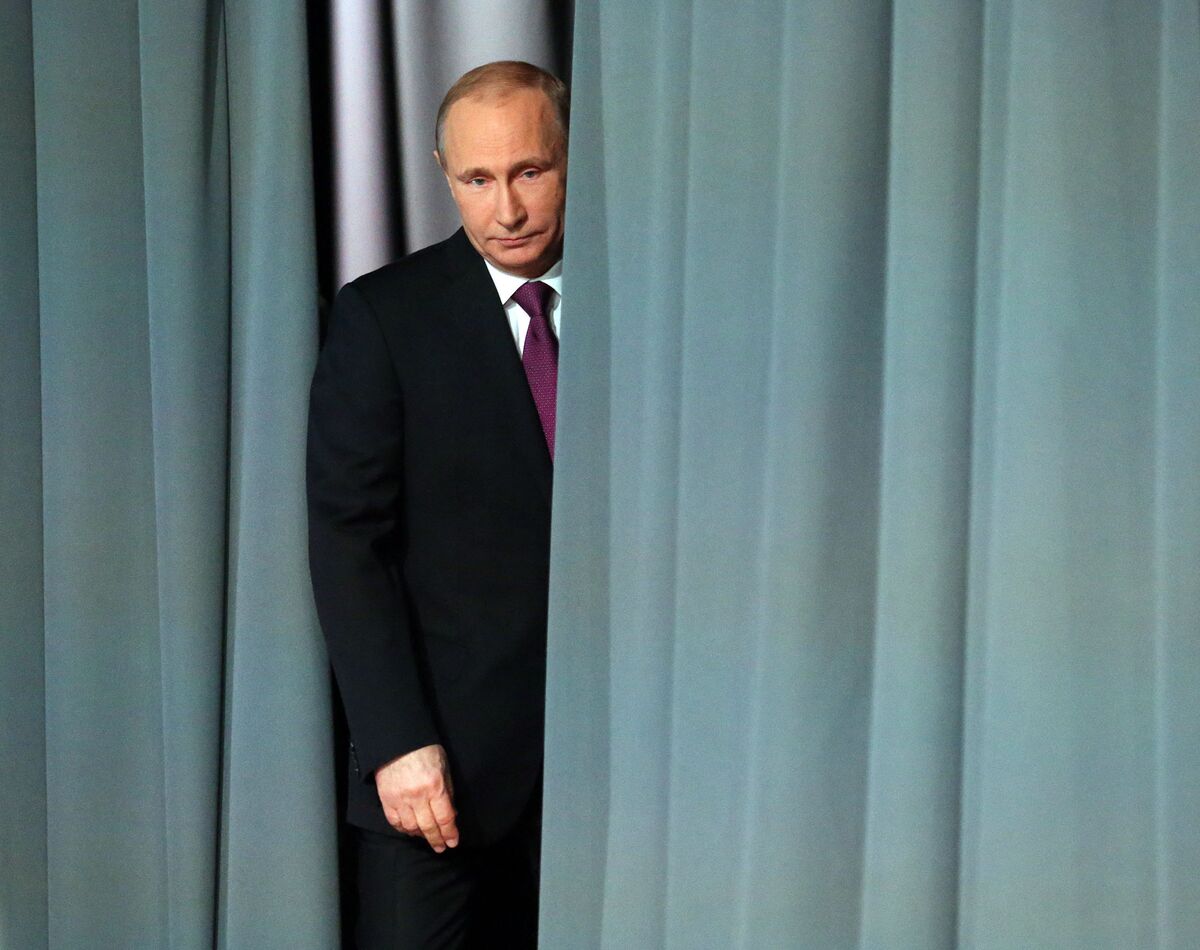
President Donald Trump will not meet formally with Russian President Vladimir Putin at an Asia-Pacific summit in Vietnam this week due to a scheduling conflict, the White House said Friday, amid U. concerns that the meeting wouldn’t create genuine progress on key issues.
“Are they going to bump into each other and say hello? Certainly possible and likely,” Press Secretary Sarah Huckabee Sanders told reporters. “But in terms of a scheduled, formal meeting, there’s not one on the calendar and we don’t anticipate that there will be one.”
Any Putin-Trump meeting would be fraught with political complications for Trump, as his campaign and his administration face investigations over ties to the Russian government during the 2016 presidential campaign. Those probes have been heating up in recent weeks, with charges filed against Trump’s former campaign manager and a foreign policy campaign aide.
Kremlin spokesman Dmitry Peskov told Bloomberg that consultations are continuing.
“There is no final understanding yet,” he said.
The Kremlin had announced that both sides were working on a suitable time and format for a meeting when both men are in Vietnam, without specifying if it’d be a formal sit-down. Secretary of State Rex Tillerson had downplayed the possibility in an interview on his flight from China to Vietnam, saying there was no point meeting if there wasn’t the likelihood they’d make progress on a number of issues.
North Korea
The news came a day after Trump met with Chinese President Xi Jinping over many of the same questions he would have discussed with Putin, notably how to rein in North Korea’s nuclear ambitions.
Xi had offered Trump few concrete proposals and little beyond well-worn phrases about the importance of denuclearizing the Korean peninsula. Both Russia and China oppose moves that would cause Kim Jong Un’s regime to collapse, and have called on both North Korea and the U. to lower tensions and start talks.
While the Kremlin had said it expected the meeting to happen, and Trump himself told reporters aboard Air Force One that a sit-down was likely, Tillerson insisted Thursday the meeting would only occur if there was "sufficient substance" to necessitate gathering.
"We’d like to know if the two heads of state are going to meet there’s something useful to point to," Tillerson told reporters in Beijing. He insisted there had not been an agreement for a formal meeting, but said it could be useful if concrete progress on the "significant conversations underway" between the U. and Russia on a range of foreign policy issues could be accomplished.
Ross Revelations
That could include efforts on North Korea, as well as the ongoing crises in Syria and Ukraine.
Any meeting between Trump and Putin could carry a political cost for the U. Recent weeks have featured a flood of difficult stories for the White House, including revelations earlier this week in the New York Times that Commerce Secretary Wilbur Ross had failed to disclose business ties to Putin associates.
Ross told Bloomberg Television that he will "probably not" maintain his stake, worth up to $10 million, in shipping company Navigator Holdings Ltd., whose clients include a Russian energy company owned partially by Putin’s son-in-law as well as an oligarch who has been sanctioned by the U.
“I’ve been actually selling it anyway, but that isn’t because of this,” Ross said Monday.
Collusion Investigation
A meeting would also follow the decision by Trump campaign foreign policy adviser George Papadopoulos to plead guilty last week to lying to the FBI about his attempts to organize a meeting between campaign staff and Russian officials. The investigation into Russian interference in the election has also already ensnared Paul Manafort, the president’s former campaign chairman, who is accused of crimes stemming from his lobbying and consulting work for pro-Russian interests in Ukraine.
Critics of the U. president accuse the White House of slow-walking new sanctions against Russia imposed by Congress, which wanted to signal its displeasure with Russian interference in the 2016 election. This week top U. technology companies, including Facebook Inc., and Google Inc. disclosed that Russia had distributed mass propaganda over their social media networks during the election.
Peskov, the Kremlin spokesman, said Friday it was "hard to overestimate the importance and significance of any contact between the president of Russia and the United States for all international matters.


0 comments:
Post a Comment